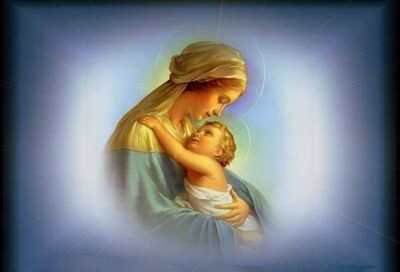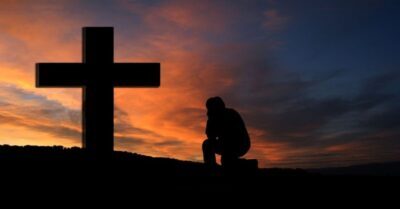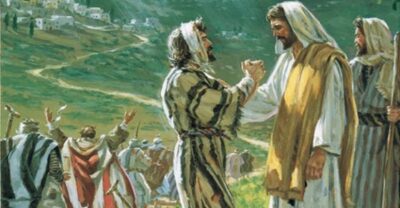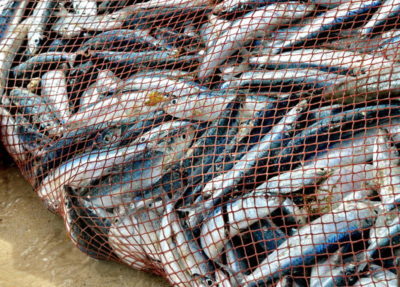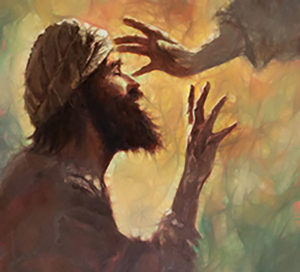January 1, 2023
|by N W
|
0 Comments
|
Blessings, Christmas, Faith, Family, Father Nixon, Life, Love, Mary, Trust
The Octave Day of Christmas
Solemnity of the Blessed Virgin Mary, the Mother of God
January 1, 2023 — Year A
Readings: Nm 6:22-27 / Ps 67 / Gal 4:4-7 / Lk 2:16-21
by Rev. Nixon Negparanon, Pastor
During the Christmas season, the image of the Most Holy Virgin Mary with her child comes readily to mind. We see this image in all Nativity things, right in front of us, and in many other places, on many Christmas cards or postcards that we receive from our families or friends. It should also be in our hearts.
We have come together here today as a family of God on this first day of the New Year. We celebrate the maternity of Mary, the event around which this feast is celebrated. As we start the New Year, we celebrate the Solemnity of Mary, the Mother of God, thus reminding us of our other mother: of course, Mother Mary.
When a child is in danger, it will instinctively call out, “Mom” or “Mama.” That’s because the essence of being a mother is care, love, help, support, and concern for her children. As a Jewish proverb puts it succinctly, “God cannot be everywhere, so he created mothers.”
As we commemorate this solemn feast, the Church has for us these brief reminders. In the year 431 AD, the Council of Ephesus, an ecumenical council of bishops of the Catholic Church, settled whether Mary was to be called “Mother of Christ” – Christotokos, implying Jesus is merely human, or “Mother of God” – Theotokos. The Council decided on the title Theotokos, Mother of God, for Mary. The Council said that Mary is rightfully the Mother of God, therefore affirming the divinity of Christ.
In the Bible, the very first person to refer to Mary as the Mother of God is her own cousin, Elizabeth, who said in a loud voice, “Who am I that the mother of my Lord should come to me?” There is nothing wrong with invoking Mary with the title “Mother of God.”
So what do we mean when we invoke Mary as the Mother of God? When we say Mary is the Mother of God, we do not mean that from all eternity, our God took His Godship from Mary, or that Mary is the source of the Godship of Jesus. As the Catholic Church teaches us, Jesus Christ was eternally begotten by God, Light from Light, True God from True God, eternally begotten by the Father. It means that Mary did not give Jesus Christ His Godship; Mary only gave birth to the humanity of Jesus Christ.
However, right from the moment of conception, the baby in the womb of Mary was truly God and truly man at the same time. Therefore, the baby born from the womb of Mary is God and man. Mary gave birth to God and man. When we say Mary is the Mother of God, it does not mean that she gave Godship to Jesus; it only means that Jesus was God right from her womb.
Saint Thomas added to this by asking, “Do mothers beget bodies or persons?” As one priest asked, “Do our mothers merely give birth to our bodies, or to ourselves as persons?” As people, of course. Thus, Mary conceived in her womb the Son of God, not just His human nature, but His divine nature as well.
If we look at the attitude of the mother, it is very beautiful. At the start, when she still bears the child in her womb, she must take care of herself, in order that the child is not in danger. She can’t sleep at night, because she watches the child sleep. As the child goes to school, she’s the one preparing the provisions.
But on the other hand, the womb of the mother becomes a battlefield or war zone, the worst enemy of the unborn, defenseless child. The enemies of the unborn child are many: abortion, artificial birth control, cigarette smoking, drinking hard liquor, and many more. That is why the child, while still in the womb of the mother, experiences rejection, insecurity, human rights violations, and lack of love from the parents. This is not so of Mary, who follows God’s will to be the mother of Jesus, even though she is in danger of being punished through stoning.
There was a teacher who had just given her primary grade class a lesson on magnets. In the follow-up test, one question read My name starts with M, has six letters and I pick up things. What am I? She was surprised to find half of the class answered the question with the word mother. Of course, the answer was supposed to be magnet.
People especially need their mothers in times of need, of uncertainty, or insecurity. We need our mothers to pick us up. Perhaps even more so for those of us who are already old, not necessarily physically, but emotionally and spiritually.
So as we begin another year, with all the uncertainties that it may bring us, the Church is telling us that we need our Blessed Mother Mary. May we all be like Mary with our total trust and faith in the Lord.
Let us not put our hopes in someone or something that may only give us false and ephemeral hope in the end. Instead, we place our entire lives in the loving and caring presence of our God who is always there for us. He is Emmanuel, “God with us.” With Mary, we pray that the Lord will bless us this new year, and all the days of our lives.
KEEP READING
 540-586-8988
540-586-8988 

